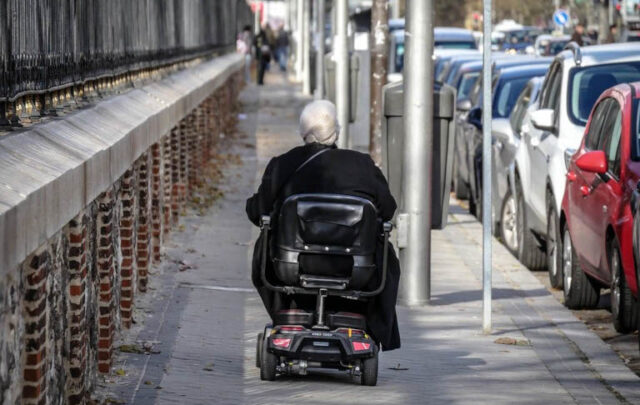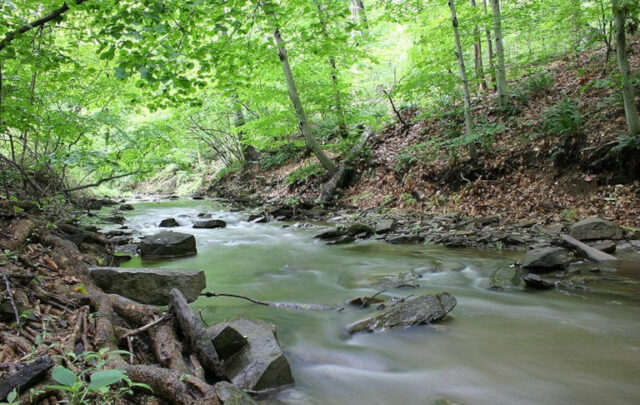 Pulcinella the marionettePulcinella was the most restless marionette in the old theater. He always had something to protest about. At performance time, he wanted to take a stroll. Or the puppet-master gave him a comic role when he had wanted something more serious.
Pulcinella the marionettePulcinella was the most restless marionette in the old theater. He always had something to protest about. At performance time, he wanted to take a stroll. Or the puppet-master gave him a comic role when he had wanted something more serious.
“One day or another,” he confided to Arlecchino the Harlequin, “I’m going to cut my strings.” And that’s what he did, but it wasn’t during the day. One night he’d gotten a hold of a pair of scissors that the puppet-master had left behind. One after the other, he cut the strings tied to his head, his hands and his feet. He said to Arlecchino:
“Come along with me.”
But Arlecchino wouldn’t even hear of being separated from his beloved Colombina. And Pulcinella had no intention of taking along that flirt Colombina who had played a hundred thousand tricks on him in the theater.
“I’ll go alone then,” he decided. He jumped courageously to the ground and away he went, legs flying.
 Columbina and ArlecchinoWhile he was running, he thought, “How beautiful not to feel all one’s parts pulled by those cursed strings! How beautiful to put one’s foot exactly where one wants it to go.”
Columbina and ArlecchinoWhile he was running, he thought, “How beautiful not to feel all one’s parts pulled by those cursed strings! How beautiful to put one’s foot exactly where one wants it to go.”
For a marionette all by himself, the world is a big and scary place. It’s inhabited — especially at night — by ferocious cats who assume that anything scurrying around is a mouse to chase. Pulcinella was able to convince the cats that they were dealing with a true artist. But in any case he took refuge in a garden. He lay down next to a low wall and fell asleep.
When the sun rose, he awoke and was hungry. But around him, as far as the eye could see, there were nothing but carnations, zinnias and hydrangeas.
 Pulcinella“Never mind!” Pulcinella said to himself. He plucked a carnation and began to nibble on the petals with a certain suspiciousness. It certainly wasn’t like eating barbecued steak or fillet of perch. The flowers had a lot of perfume but little flavor. However to Pulcinella this was the taste of liberty. With the second bite he was sure that he had never tasted any food that had been more delicious. He decided to live forever in the garden, and that’s what he did. He slept under a great magnolia tree whose strong leaves protected him from rain and hail. He fed himself on flowers; today a carnation, tomorrow a rose. Pulcinella dreamed of mountains of spaghetti and fields of mozzarella cheese but he never gave in. He became very skinny but he smelled so sweet that bees landed on him to suck his nectar. Only after trying to sink their stingers into his wooden head did they flew away frustrated.
Pulcinella“Never mind!” Pulcinella said to himself. He plucked a carnation and began to nibble on the petals with a certain suspiciousness. It certainly wasn’t like eating barbecued steak or fillet of perch. The flowers had a lot of perfume but little flavor. However to Pulcinella this was the taste of liberty. With the second bite he was sure that he had never tasted any food that had been more delicious. He decided to live forever in the garden, and that’s what he did. He slept under a great magnolia tree whose strong leaves protected him from rain and hail. He fed himself on flowers; today a carnation, tomorrow a rose. Pulcinella dreamed of mountains of spaghetti and fields of mozzarella cheese but he never gave in. He became very skinny but he smelled so sweet that bees landed on him to suck his nectar. Only after trying to sink their stingers into his wooden head did they flew away frustrated.
Winter came and the garden withered. The poor marionette had nothing left to eat. Don’t say that he should have gone on with his trip: his poor legs were so weak they could no longer take him far.
“Never mind,” said Pulcinella to himself. “I will die here. It’s not a bad place to die. What’s more, I’ll die free: no one can tie a string to my head to make me say yes or no.”
The first snow buried him under a soft white blanket.
When spring came, a carnation grew where he had lain. Under the ground, calm and contented, Pulcinella was thinking, “Look! Above my head a flower has grown. Could anyone be happier then I?”
But he wasn’t dead, because wooden marionettes never die. He’s still there under the ground, no one knows where. If it’s you who find him, please don’t tie a string to his head. The kings and queens of the theater may not mind the strings, but Pulcinella — he can’t abide them.
 Pulcinella in the city park of Spittal an der Drau, Austria
Pulcinella in the city park of Spittal an der Drau, Austria
Translated by Bart Anderson





